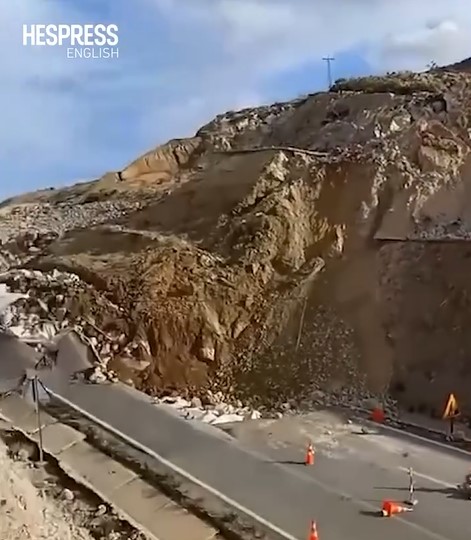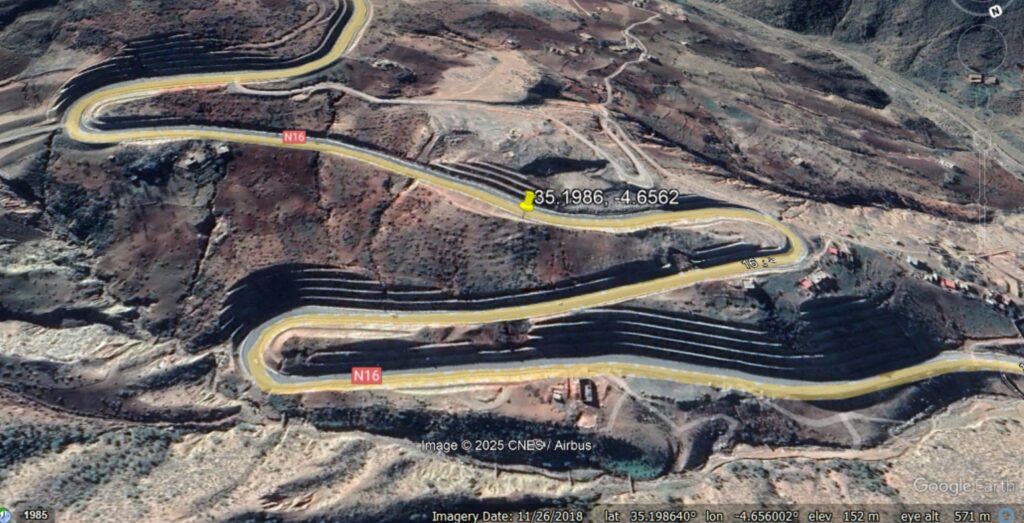The Landslide Blog is written by Dave Petley, who is widely recognized as a world leader in the study and management of landslides.
An interesting and unusual landslide occurred on 27 January 2025 on a key road near to the coastal town of El Jebha in Morocco. The failure occurred on the highway (N16) that links El Jebha to Al Hociema, at about [35.1986, -4.6562]. The road remains closed.
Hespress has posted an interesting video of the aftermath of the landslide to Instagram. You may be able to see this below:-
This is a still from the video that shows the landslide:-

As the video shows, this is a large and complex landslide. There is a very small amount of rotation in the lower portion, but this is extremely limited. The depth to which the road has been buried is impressive, leaving a very challenging repair.
The failure appears to have occurred in the section of road shown below:-

This is clearly a very difficult section of road, traversing steep terrain via a series of switchbacks with steep road cuts. There are several locations in which there has been previous slope instability, and others in which there appears to be incipient failures.
There are local news stories here and here about the landslide.
The section of road that has failed lies in the Rif Mountains. There is a good article from November 2024 (Marwane et al. 2024 – available on ResearchGate) that discusses instability in the area between El Jebha and Al Hociema. It notes that, in this area:
“Additionally, anthropogenic landslides tend to happen when road construction takes place in geotechnical challenging areas, such as those with flysch or schist formations. Where actions such as excavation and construction on slopes decrease slope stability by removing toe support of the slopes and increasing shear stress on the rupture surface, thereby reducing the safety factor.”
This appears to be an accurate description of the landslide at El Jebha.
Reference
Marwane, H. et al. 2024. Development of Landslide Risk Maps in the Rif Mountains of Morocco. Journal of Advanced Research in Applied Sciences and Engineering Technology, 60 [2], 1-20. DOI: 10.37934/araset.60.1.120

